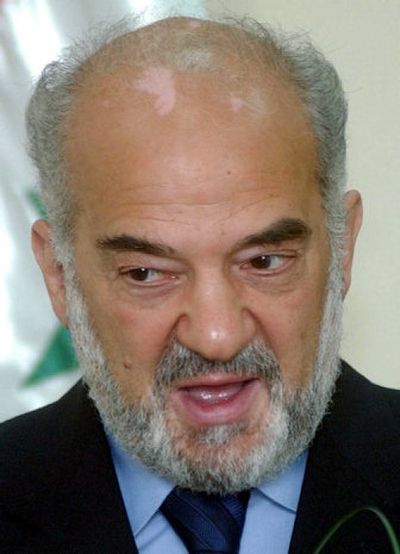Al-Jaafari loses Shiite supporters

BAGHDAD, Iraq – Prominent Shiite politicians deserted beleaguered Iraqi Prime Minister Ibrahim al-Jaafari on Saturday and said that they had started looking for a less polarizing figure who could help overcome differences blocking the formation of a unity government.
Kurdish, Sunni Arab and secular blocs all have lined up against al-Jaafari, but members of the governing Shiite bloc had stuck with him. U.S. and Iraqi officials said last week that the White House also had sent a message to Iraqi officials asking that the prime minister be replaced.
Opposition to al-Jaafari among Kurds and Sunni Arabs has been a main stumbling block to the formation of a new government since the Dec. 15 elections. On Saturday, a senior U.S. military official blamed the resulting leadership vacuum for allowing sectarian violence to fester and spread.
“What we want to see is the rule of law with the government in control and governing in Iraq,” said the official, who spoke on condition of anonymity. “It’s tough when the government has not been stood up.”
Violence has mounted since the Feb. 22 bombing of an important Shiite mosque in Samarra, which unleashed a spate of reprisal attacks by Shiite militia forces against Sunni Arabs.
Shiite calls for al-Jaafari to resign came after the other blocs formally reiterated their opposition to his candidacy last week and al-Jaafari made last-ditch efforts to convince them that he should remain.
The most damaging development for al-Jaafari, a religious scholar with close ties to Iran, is the erosion of his support within the Supreme Council for Islamic Revolution in Iraq, a dominant Shiite party. A high-level strategist suggested Saturday that the party would be willing to withdraw its support for al-Jaafari if they were unable to persuade the other ethnic and religious blocs to accept him.
“If we find that the road is blocked and other alliances are insisting on him leaving, and we cannot form the national unity government, then we will do what we must to have an agreement between all the blocs for the sake of the political process,” said Ridha Jawad Taqi. “We don’t want to hinder the political process.”
The Shiite alliance holds 130 of the 275 seats in Parliament. But the members of the Cabinet must be approved by a two-thirds margin, so the Shiites need the support of other parties.